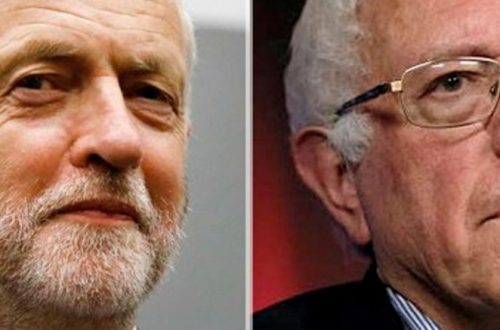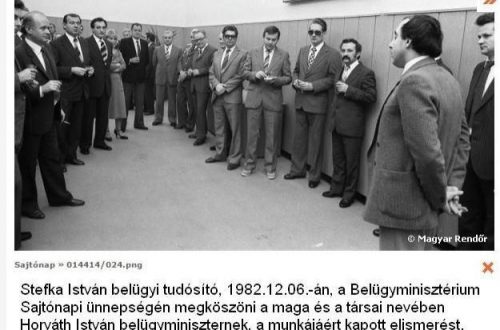This is a cross post by Dave Rich from the CST Blog
In February 2009, the playwright Caryl Churchill wrote a short play, called Seven Jewish Children, as her “response to the situation in Gaza” the previous month. The play is explicitly about Jewish parents and children (Jews are mentioned in the title and the text, whereas the word “Israeli” does not appear once in the play); but in attempting to explore Jewish attitudes towards children, both Jewish and Palestinian, Churchill achieved little more than to reflect the febrile atmosphere of the time, in which antisemitic incidents in this country reached an all-time high and public demonstrations against Israel regularly became violent.
If Churchill’s play was her response to events in Gaza, she was not the only writer to be so inspired: Howard Jacobson wrote his Man Booker Prize-winning novel, The Finkler Question, in part as a response to the response to Gaza. While the period of the Gaza conflict has now passed and tempers cooled somewhat, Seven Jewish Children is still regularly put on by pro-Palestinian groups, refuelling their activism and providing a literary basis for their ongoing anti-Israel politics. One of the most eye-catching locations for an upcoming production of the play is Lincoln, the location of one of the most notorious episodes in English antisemitism; an episode which provided one of the earliest works in the canon of English literary antisemitism.
According to the website of the Palestine Solidarity Campaign, Seven Jewish Children will be performed in Lincoln on 11th April, at the University of Lincoln’s Performing Arts Centre. Not only is the University providing the venue: according to PSC, the play is organised by the University of Lincoln’s School of Performing Arts and School of Humanities. The play is not advertised on the website of the Performing Arts Centre, but it may be connected to a symposium on Caryl Churchill’s work being held at the University five days later.
It is fair to say that Seven Jewish Children divided opinion, and continues to do so. John Nathan, reviewing it in the Jewish Chronicle, wrote that, “For the first time in my career as a critic, I am moved to say about a work at a major production house that this is an antisemitic play.” Christoper Hart in the Sunday Times described it as “straitjacketed political orthodoxy. No surprises, no challenges, no risks. Only the enclosed, fetid, smug, self-congratulating and entirely irrelevant little world of contemporary political theatre.” His stablemate at The Times, Dominic Maxwell, on the other hand, considered the play “an impassioned response to the events in Gaza that is elliptical, empathetic and illuminating.”
The Guardian published a positive review of the play by Susannah Clapp, two byMichael Billington and even produced its own video version of the play which is still available to view on the Guardian website. But to their credit, the Guardian’sComment Is Free blog also published an article by me and my CST colleague Mark Gardner, arguing that the play (and particularly the Guardian’s production of it) evoked, in contemporary terms, the medieval blood libel, which accused Jews of having a particular bloodlust for the murder and mutilation of non-Jewish children.
We were certainly not the only people to feel that Churchill’s play carried echoes of this most vicious of antisemitic slurs. As its title suggests, the play talks only of Jews, not of Israelis; it traces Israeli behaviour to an unbroken line of Jewish attitudes and behaviour stretching back before Israel even existed; most of the Palestinians who die in the play are children, whereas the only Jews who die are adults; and the play ends with a monologue of genocidal racial hatred, culminating in that noxious mixture of Jews, children, death and blood:
…tell her I laughed when I saw the dead policemen, tell her they’re animals living in rubble now, tell her I wouldnt care if we wiped them out, the world would hate us is the only thing, tell her I dont care if the world hates us, tell her we’re better haters, tell her we’re chosen people, tell her I look at one of their children covered in blood and what do I feel? tell her all I feel is happy it’s not her.
As Howard Jacobson wrote in The Independent:
Caryl Churchill will argue that her play is about Israelis not Jews, but once you venture on to “chosen people” territory – feeding all the ancient prejudice against that miscomprehended phrase – once you repeat in another form the medieval blood-libel of Jews rejoicing in the murder of little children, you have crossed over.
Anthony Julius’s magisterial Trials of the Disapora includes a compelling chapter on English literary antisemitism, which identifies the way in which the blood libel and associated antisemitic tropes have framed how Jews have been treated by many of the greatest English authors, poets and playwrights. This is no fringe phenomenon, as Julius explains:
The literary canon is made up of those texts that have become central to the imagination of successive generations of writers, are taught in schools and universities, and contribute to a certain national self-understanding. They comprise an authoritative tradition. The pre-eminent authors of the English literary canon are Chaucer, Shakespeare, and Dickens. Anti-Semites take pleasure in the fact they are also the pre-eminent authors of the English literary anti-Semitic canon.
Julius is referring to Chaucer’s The Prioress’s Tale, Shakespeare’s The Merchant of Venice and Dickens’s Oliver Twist. He traces the English literary antisemitic canon from the first tellings of the blood libel in medieval English literature to the “contemporary moment”. The chapter concludes with Seven Jewish Children; but one of the earliest episodes explored by Julius comes from Lincoln.
The popular English ballad, Sir Hugh, or the Jew’s Daughter, was based on the 1255 Lincoln blood libel, one of the best-known and most enduring of the medieval English blood libels against Jews. The actual story of the blood libel began in July 1255, when an eight or nine year old boy called Hugh disappeared in Lincoln. When his body was discovered a month later near the property of a Jewish resident of Lincoln named Jopin, the Jews of Lincoln were collectively accused of having kidnapped, tortured, crucified, killed and disembowelled him. Jopin was executed; 91 of the town’s Jews were then put on trial, 18 of whom were also executed. “Henry III”, writes Julius, “was the first monarch to have had Jews executed for ritual murder.” As with much medieval English antisemitism, the persecution came with economic benefits for the King and others. Lincoln Cathedral built a shrine to Hugh, which drew pilgrims for centuries afterwards.
In the version of the story told in the ballad of Sir Hugh, or the Jew’s Daughter, the boy accidentally kicks a ball through the window of a Jew’s house, and goes to ask for it back. The Jew’s daughter entices him into the house, then stabs him to death and disposes of the body. The child bleeds to death, as described in these terms:
And first came out the thick, thick blood,
And syne came out the thin;
And syne came out the bonny heart’s blood;
There was nae mair within.
When Hugh fails to return home and his mother goes to look for him, his dead body miraculously calls out to alert her to its location.
Versions of the ballad endured as popular oral tradition well into the 2oth century. Contemporary versions – without the Jewish aspect – were put to music by Benjamin Britten and Steeleye Span. It is mentioned in Chaucer’s The Prioress’s Tale – “O yonge Hugh of Lyncoln, slayn also / With cursed Jewes, as it is notable” – itself a blood libel story. For Julius, the ballad “may be regarded both as an initial episode and as a continuing episode, because by its longevity it continuously accompanies the development of English literary anti-Semitism.” It was only in the 1950s that the shrine to Hugh was removed from Lincoln Cathedral and replaced with this notice:
By the remains of the shrine of “Little St. Hugh”
Trumped up stories of ‘ritual murders’ of Christian boys by Jewish communities were common throughout Europe during the Middle Ages and even much later. These fictions cost many innocent Jews their lives. Lincoln had its own legend and the alleged victim was buried in the Cathedral in the year 1255.
Such stories do not redound to the credit of Christendom, and so we pray:
Lord, forgive what we have been, amend what we are, and direct what we shall be.
It is not possible to know whether the staff or students at the University of Lincoln know the history of Lincoln’s blood libel, or the role it played in creating and sustaining a tradition of English literary antisemitism. It is possible that they are familiar with that history but do not consider it relevant to Seven Jewish Children, even though Seven Jewish Children, like Sir Hugh, or the Jew’s Daughter, is based on the juxtaposition of Jewish and non-Jewish children, with the latter left covered in their own blood.
A symposium in Lincoln on Caryl Churchill’s work, with an associated performance ofSeven Jewish Children, could provide the perfect opportunity to explore the idea thatSeven Jewish Children falls into a tradition of antisemitic literature that found one of its earliest expressions in a story about events in Lincoln some 750 years ago. We do not know what papers have been submitted to the symposium, nor what the keynote speaker, Professor Elaine Aston of Lancaster University, plans to say. But its organiser, Dr Sian Adiseshiah, did touch on this argument in her recent work,Churchill’s Socialism: Political Resistance in the Plays of Caryl Churchill.
And what did Adiseshiah have to say about the idea that Seven Jewish Children evokes the master myth of English antisemitism, the blood libel, a myth that has framed an entire tradition of antisemitic English literature, which stretches back to the twelfth century and encompasses some of England’s greatest writers?
Of course, the play was accused by some of being anti-semitic, an accusation seemingly difficult to avoid for those campaigning against Israeli occupation and expressing Palestinian solidarity.



